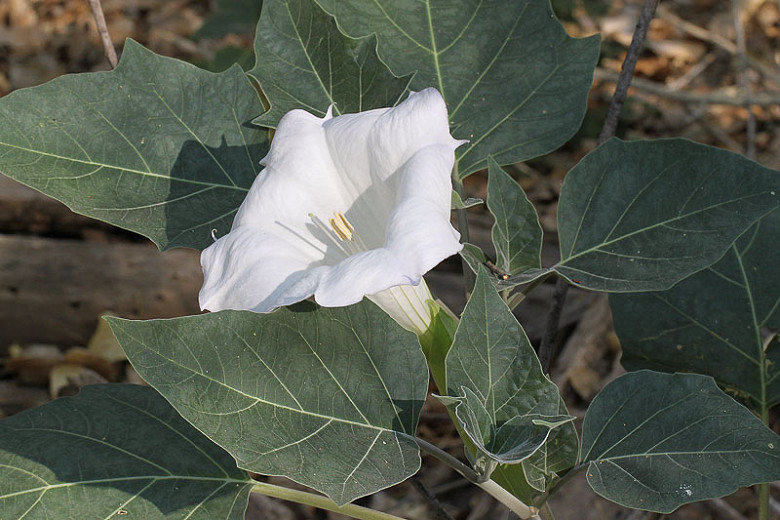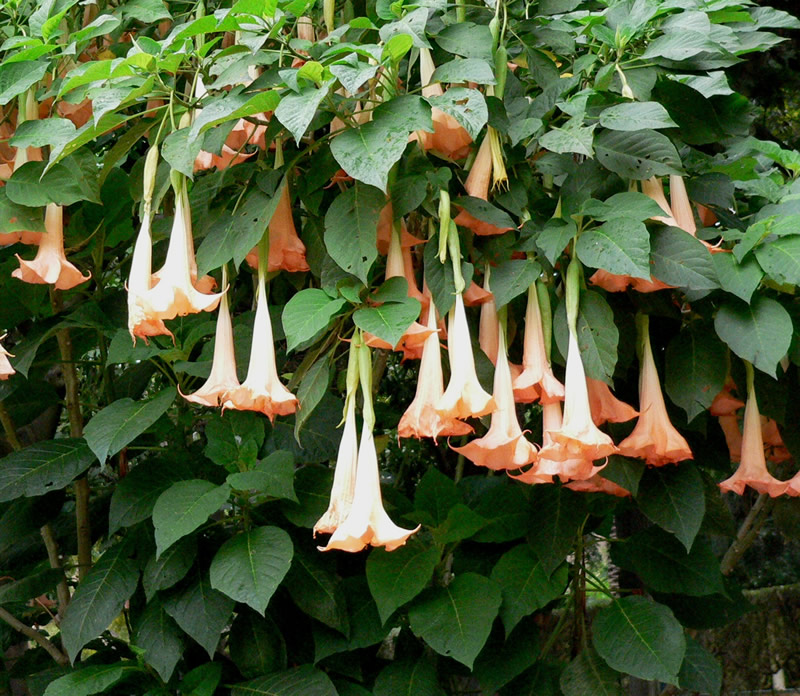Datura/Jimson Weed
In the shadowy corners of botanical lore, amidst the dark and enigmatic members of the Nightshade family, Datura stands as a sentinel of mystique and peril. This article embarks on an illuminating odyssey into the intricate world of Datura, unveiling its enigmatic history, exploring its multifaceted therapeutic and ritualistic applications, and delving into the profound impact it exerts on the labyrinthine corridors of mental health. Throughout this journey, we shall also delve into the pivotal role of guides, the trusted custodians of these ethereal experiences

Datura aka Jimsonweed plant
History
The history of Datura is a tale woven with threads of mysticism, entwined with the shamanic traditions of diverse cultures across the ages. Indigenous peoples of the Americas, from the Huichol in Mexico to the Navajo in the United States, regarded Datura as a potent conduit to the spirit world. This bewitching plant, often referred to as "Jimson Weed" or "Devil's Trumpet," held a revered place in their sacred rituals.
The use of Datura transcended geographical boundaries, making its presence felt in far-flung regions like India, where it earned the moniker "Dhatura." In ancient Sanskrit texts, Datura was hailed as a means to commune with deities and navigate the realms of dreams and visions.
Therapeutic Uses
Datura's therapeutic potential, akin to its botanical cousins in the Nightshade family, is laced with complexity and danger. The plant contains tropane alkaloids, including scopolamine and atropine, notorious for their profound psychoactive effects. In the realm of traditional medicine, Datura found application in managing various ailments, including pain relief, asthma, and as a poultice for wounds.
However, the razor-thin line that separates therapeutic dosage from toxicity casts a long shadow over Datura's medical applications. The plant's potency, combined with its unpredictable effects, has led many modern medical practitioners to approach it with extreme caution, if not outright avoidance.

Guides, the steadfast guardians of the Datura experience, occupy an indispensable role in ensuring safe and meaningful journeys. Their expertise serves as a beacon in the profound darkness that often envelops Datura's effects. These seasoned custodians provide seekers with invaluable insights, including proper dosage, preparation, and harm reduction measures.
During the journey, guides offer unwavering support, akin to a lighthouse in turbulent seas. They ensure that the experience remains therapeutic, steering it away from the treacherous shoals of delirium and confusion that can plague the unguided voyager. Their presence is a lifeline, offering solace and reassurance amidst the tempestuous visions and surreal landscapes that Datura unfurls.
Mental Health Impact
Datura's impact on mental health is an enigmatic riddle, often characterized by a dark and turbulent undercurrent. The alkaloids within Datura, notably scopolamine, engender states of delirium and disorientation that blur the boundaries of reality. Users frequently report encounters with shadowy entities, vivid and often harrowing hallucinations, and a profound sense of detachment from the self.
However, amidst the chaos and confusion, some individuals claim to find profound insights and revelations. These insights, though shrouded in the murkiness of Datura-induced delirium, can, on occasion, lead to moments of clarity and introspection.
Datura, the bewitching enigma of the Nightshade family, beckons those who dare to tread its shadowy pathways. Its history, fraught with mysticism and danger, serves as a testament to its enduring allure. In the hands of experienced guides, Datura becomes a key to unlock the hidden realms of the psyche.
Guides, with their sagacious wisdom and unwavering presence, are the beacon of light in the profound darkness of Datura-induced states. They offer seekers the chance to navigate these treacherous waters safely and to glean insights, however cryptic, from the unfathomable depths of this botanical enigma.
As we traverse the intricate landscape of Datura, we are reminded of its dual nature—an alluring siren that beckons with promises of revelation and insight, yet conceals the abyss of delirium beneath its surface. It is a plant that demands the utmost respect and caution, and in the presence of guides, its mysteries can be explored, if one dares to gaze into the abyss.